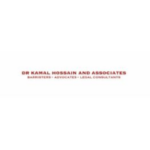-
Is your jurisdiction a common law or civil law jurisdiction?
The Colombian Legal System is governed by the system known as civil law.
-
What are the key statutory/legislative obligations relevant to construction and engineering projects?
In Colombia, construction and engineering projects are subject to a set of legal obligations that aim to ensure safety, quality, and regulatory compliance. The main legal obligations are detailed below:
Urban Licensing o permit: It is mandatory to obtain the corresponding urban licensing, issued by the competent authority, before commencing any construction, expansion, modification, adaptation, structural reinforcement, restoration, reconstruction, enclosure, demolition of buildings, and urbanization, parceling, lotting or subdivision of properties located in urban, urban expansion, and rural lands. The main legal framework is constituted by Law 388 of 1997, Decree 1077 of 2015 and the Territorial Planning Scheme of each municipality or district.
Seismic Resistant Standards: Buildings must comply with the regulations governing seismic-resistant constructions, such as the Colombian Seismic Resistant Construction Regulation NSR-10.
From an environmental legal perspective, construction and engineering projects are subject to a series of key obligations and considerations that must be addressed from the planning phase, through execution, and into post-construction. The most relevant are outlined below:
Environmental due diligence of the development area: Although not a strict legal requirement, conducting prior environmental due diligence is essential to identify and manage risks. This evaluation helps determine whether the area overlaps with environmental protection zones, nature reserves, riparian areas, or strategic ecosystems, which may restrict or condition the types of activities permitted.
Verification of public utility service coverage: Initial due diligence also helps determine whether the project area is covered by public utility infrastructure, especially in terms of potable water and basic sanitation. If such services are not available, the necessary environmental permits must be obtained.
Mandatory environmental permits and licenses: Depending on the type, scale, and location of the project, the following environmental procedures may be required and must be completed before the start of construction:
Environmental license: Mandatory for high-impact projects as defined by the environmental authority. This process includes an Environmental Impact Assessment (EIA).
Water concession permit: Required to extract water from surface or underground sources.
Discharge permit: Necessary when wastewater is discharged into the soil or water bodies, ensuring compliance with technical quality standards.
Permits for forest use, occupation of watercourses, air emissions, among others, depending on the specific activities of the project.
Management of waste and environmental liabilities: The project owner is obligated to implement an integrated management plan for construction and demolition waste (CDW), and to prevent the generation of environmental liabilities during and after the construction phase.
Compliance and monitoring: Throughout the execution and operational phases of the project, all conditions set forth in the environmental licenses or permits must be fulfilled, including the submission of monitoring and follow-up reports.
Corporate requirements: From a corporate perspective, construction projects entail different obligations for companies, which must be analyzed prior to the execution of these activities. The company must be incorporated in accordance with the legal requirements and be qualified to carry out the construction activities for the corporate purpose of the company and comply with the obligations predicable to the type of company through which they decide to devel the project. Likewise, it is essential to determine the key contracts to be entered into during the execution of these activities, such as works contracts, Engineering, Procurement and Construction (EPC), supervision contracts, among others; this allows for the allocation and distribution of obligations between the parties, including performance clauses and compromissory clauses.
Labor Obligations: During the execution of these activities, it is important to comply with labor and social security obligations, such as the payment of social contributions, occupational health and safety management system (SG-SST), with a special focus on compliance with the occupational risk regime, due to the high level of exposure to which workers are exposed.
Consumer Law: Construction and engineering projects are subject to legal obligations that protect the rights of purchasers as consumers, when applicable; some of the obligations are as follows:
- Quality assurance: Guarantee that the goods or services delivered comply with the agreed specifications and are free from defects.
- Transparent information: They must inform consumers clear and truthful information about the characteristics of the project, without leaving behind any risks or limitations (Law 1480 of 2011).
- Special protection for homebuyers: Law 546 of 1999 establishes a special regime for buyers who use the property for housing.
- Claiming guarantees: Consumers can claim within the established legal term, which counts from delivery.
-
Are there any specific requirements that parties should be aware of in relation to: (a) Health and safety; (b) Environmental; (c) Planning; (d) Employment; and (e) Anti-corruption and bribery.
(a) health and safety;
Companies in this sector are obliged to strictly implement the Occupational Health and Safety Management System (SG-SST), according to Decree 1072 of 2015. Likewise, these companies are obliged to offer programs to prevent any occupational risk and to guarantee that all its personnel is affiliated to the Occupational Risk Management System (ARL).
(b) environmental issues;
The specific requirements depend on the magnitude, impact, and/or location of the project. However, whenever the use of natural resources is involved, the corresponding permits must be obtained from the competent environmental authority, and these must be secured prior to the start of the project.
(c) planning;
The obligation to have the respective urban planning license, complying with the regulations for the use and exploitation of the land and fulfilling the respective urban planning obligations within the framework of the respective Territorial Planning Scheme.
Complying with the obligations, conditions and safety requirements established in the respective urban planning license.
(d) employment; and
There are several important requirements that companies must comply within labour matters at the time of contracting, among them; (i) payment of salary and social benefits, (ii) payment of overtime hours during the day, at night, Sundays and holidays, which is very common in this type of activities, (iii) payment of social security, (iv) delivery of clothing and footwear corresponding to the activity to be performed and corresponding to the risk that the worker may have.
In addition, workers must be guaranteed of their right to vacation and time off or leave.
(e) anti-corruption and bribery.
Yes, the implementation of these projects requires compliance with certain anti-corruption and anti-bribery requirements; these are mainly established in the anti-corruption statute (Law 1474 of 2011); companies in this sector that reach certain revenue thresholds will be obliged to implement Transparency and Business Ethics Programmes (PTEE), which should include due diligence policies, confidential whistleblowing channels for reporting, among others. During licensing and permitting, public procurement processes, and payment of suppliers and contractors, meticulous documentation is recommended to demonstrate that these are transparent processes. Finally, a good practice is the implementation of ISO 37001 standards, as it establishes certain guidelines for the prevention, detection and management of possible corruption incidents, which can mitigate and especially improve your market position.
-
What permits, licences and/or other documents do parties need before starting work, during work and after completion? Are there any penalties for non-compliance?
In Colombia, the permits, licenses, and documents required for construction projects vary depending on the project stage (before, during, and after execution). Below, the requirements for each stage are detailed:
A. Before Starting Construction
Urban Licensing: It is mandatory to obtain this license before starting any construction work. The license must be issued by the competent authorities (municipalities, districts, or urban curators) and must comply with the Territorial Planning Scheme and other applicable urban regulations. The documents required to process this application are detailed in Resolution 1025 of 2021 of the Ministry of Housing. Among these documents, the certifications issued by public utility companies regarding the immediate availability of public services are highlighted for urbanization licenses, or the authorizations that support how public utility services such as potable water and basic sanitation will be provided in the case of self-supply for parcelation licenses.
Approval of Designs: In the case of urbanization and parcelation licenses, once obtained, it is necessary for the competent authorities to approve the construction and/or provision designs for roads, parks, equipment, public service networks, etc.
Obtaining environmental licenses, permits, and/or authorizations: The need to obtain an environmental permit depends on whether the project requires the use or exploitation of a natural resource. Below are some examples of permits:
- If the project requires the use of surface or groundwater for supply, it must obtain a water concession.
- If the project requires the use of water or soil to discharge the treated wastewater it generates, it must obtain a discharge permit.
- If the project requires cutting down trees to clear the work area, it must obtain a forest use permit.
Depending on the project and its location, community participation processes may need to be carried out.
Review of the availability of essential public utilities, such as water supply, sewage systems, and electricity, and their compatibility with the project’s requirements. If such infrastructure is not available, the necessary environmental permits for alternative solutions are obtained.
Environmental due diligence to determine whether the project area overlaps with environmentally protected zones, natural reserves, riparian areas, strategic ecosystems, or any other areas under special environmental regulation that may restrict or condition development.
Advisory on the formulation of initial environmental management plans, including the Construction and Demolition Waste (CDW) Management Plan, and strategies to prevent the generation of environmental liabilities during and after construction.
Sales permits are required to promote, advertise, and develop housing projects. In this case, those interested in developing housing plans must only file the following documents with the municipal or district administration responsible for the supervision and control of the construction and sale of real estate activities:
- Real estate registration folio of the real estate property or properties that are the object of the request, whose date of issue is not older than three (3) months;
- Copy of the model contracts to be used in the execution of the real estate transfer business with the purchasers, in order to verify the coherence and validity of the clauses with the compliance of the rules that civil and commercially regulate the contract;
- The financial budget of the project;
- The respective urban development license, except in the case of the pre-sale system; and
- When the property on which the plan or program is to be developed is encumbered with a mortgage, it must be evidenced that the mortgage is obligated to release the land or buildings that are being sold, by means of the proportional payment of the lien affecting each lot or building.
B. During Construction
Technical Supervision: Independent technical supervision is required for the execution of construction projects that require and are subject to independent review of structural designs, for example, buildings with or exceeding two thousand square meters (2,000 m²) of built area.
Updating Licenses: During the execution of the project, it may be necessary to extend planning licenses due to their expiration and/or modify them if changes are intended to the original project.
Environmental requirements such as:
- Monitoring and oversight by the environmental authority
- Implementation of sustainable construction practices
- Compliance with setback and separation requirements.
- Advisory on proper management of construction-generated waste, particularly hazardous and CDW materials.
- Support during environmental authority site inspections and compliance monitoring visits.
- Identification of environmental risks and contingencies, and formulation of prevention, mitigation, correction, and compensation measures.
- Evaluation and proposal of sustainable construction alternatives, including water and energy efficiency measures.
- Advisory on the design and implementation of water management systems, such as water recirculation, rainwater harvesting, and gray water reuse.
C. Once Construction is Completed
Final Delivery: In the case of urbanization and parcelation licenses, once the works are completed, it is necessary to obtain a final certification that accredits compliance with established technical and regulatory standards.
Fulfilment of obligations derived from the permits: Such as: monitoring, reporting, environmental compensations, etc. It is important to consider that if a natural resource is used or exploited without obtaining the required permit, the environmental authority is empowered to impose various sanctions such as fines, as well as corrective and compensatory measures to repair the damage caused.
Verification of compliance with all environmental obligations associated with permits and licenses, and preparation of final reports required by the environmental authority.
Management of the transfer, renewal, or filing of environmental files, as applicable.
Support during environmental authority inspections to verify regulatory compliance.
Advisory on the design and implementation of decommissioning plans, where applicable, to ensure legal compliance and proper environmental management at project closure.
Obtention of the necessary permits certifies the viability for the occupation of units destined for human habitation, in the case of construction permits for housing projects.
-
Is tort law or a law of extra-contractual obligations recognised in your jurisdiction?
In the Colombian legal system, extra-contractual civil liability is recognized. This regime is primarily regulated in Articles 2341 to 2360 of the Civil Code.
Notwithstanding the foregoing, the law of extra-contractual liability has been extensively developed by the High Courts of Colombia (the Supreme Court of Justice and the Council of State), which have established specific rules for the application of the extra-contractual liability regime.
-
Who are the typical parties involved in a construction and engineering project?
In a construction and engineering project in Colombia, the typical parties involved include:
The landowner: who holds legal title to the property. If the landowner is not the developer of the project, he or she may sell or contribute the land to the developer.
Project Promoter or developer: This is the person or entity that leads and finances the project and is responsible for contracting the company or individual that executes the works according to the approved designs and specifications. This can be a real estate developer, a public entity, or a private individual.
Financers: Normally, financers of construction projects are the State, through the entities intended to commission construction projects, private companies, banks or institutional investors such as pension funds.
Technical Consultants: These include architects, structural engineers, civil engineers, and other professionals who design, execute, and supervise the project.
Competent Authorities: These include municipalities, districts, urban curators, and other government entities that issue urban planning licenses and oversee compliance with technical and legal standards.
-
What are the most popular methods of procurement?
Procurement for construction and engineering projects is carried out through open or closed RFP (Request For Proposal) processes. In open RFP processes, the landowner or developer sends invitations to specific third parties that they consider qualified for the submission of proposals regarding the development and execution of the project. In closed RFP processes, the landowner or developer publishes the request for proposals so that any person who considers themselves qualified can submit their proposal.
-
What are the most popular standard forms of contract? Do parties commonly amend these standard forms?
The contracting methods most used in real estate and construction projects depend on the specific needs of the project, the parties and the objectives of each project.
On the one hand, we can find the most common contracts such as those for the purchase and sale of land for the development of projects, supply contracts or contracts for the provision of services for the development of works.
On the other hand, the real estate trust contract is commonly used in the execution of these projects; in these contracts the builder or developer transfers the ownership of the property to a trust and the trust company administers and manages the activities of the project; likewise, there is the delegated administration contract, where the owner delegates to an administrator who is in charge of executing the material work and managing the resources.
The joint venture contract is also used in different projects, since it allows different parties to associate to develop the project, one of the parties manages the contributions of the participants without the need to create a new legal entity. As previously noted, each contract is adapted to the specific needs of the project, which is why, under freedom of contract, these contracts are usually modified and negotiated freely by the participants.
-
Are there any restrictions or legislative regimes affecting procurement?
The private construction sector is subject to both general and special restrictions. At a general level, we find the Civil Code and the Commercial Code, which regulate Construction Contract, Professional Services Agreement, Agency Agreement, Supply Agreement, Trust Agreements, among others. Likewise, at a special level, we find laws such as Law 400 of 1997, later amended by Law 1229 of 2008 (rules on earthquake resistant construction), which impose minimum guidelines during construction and the hiring of professionals.
Additionally, with respect to private contracting processes, Law 155 of 1959 and Law 1340 of 2009 regulate restrictive and prohibited commercial practices that may affect free competition in the market.
-
Do parties typically engage consultants? What forms are used?
Indeed, during the execution of these activities, it is very common for the parties to hire specialised consultants, as this guarantees them technical and legal support to ensure the viability and success of the project. They are usually hired as consultants for architectural and structural design, technical supervisors, legal and regulatory consultants, project management, financial or fiduciary consultants, among others. However, about the most used contract forms and models, the following stand out:
- Technical consultancy contracts (especially for studies and designs);
- Controller contracts (Allows supervision at technical and administrative level);
- Project management contracts (support in the planning and execution stages).
-
Is subcontracting permitted?
Subcontracting is permitted in Colombia , however, it is important to highlight that there are different possibilities to use this possibility: (i) the contractor must have prior written authorisation to subcontract; (ii) the contractor may not be exonerated from its obligations and responsibilities so it will be held responsible for the performance of the contract; (ii) the contractor may be jointly and severally liable for the labour and social security obligations acquired by the subcontractor on the occasion of the execution of this contract.
-
How are projects typically financed?
The pre-sales system has been consolidated, for more than 25 years, as the fundamental mechanism to ensure the execution of real estate projects in Colombia, allowing builders to reach a commercial and economic break-even point prior to the execution of works, mitigating financial risks. This model has structured financing around three main sources:
- The builder’s equity (own capital that finances the initial stages and part of the land acquisition).
- Down payments (payments from buyers during the pre-sales and construction phase).
- Debt (from commercial banks, institutional investors or private equity funds).
For larger projects, the financing scheme is complemented by other types of instruments, especially for land acquisition (backed by specialised bank loans) and for management fees, which can be covered by investment funds specialised in the real estate sector.
-
What kind of security is available for employers, e.g. performance bonds, advance payment bonds, parent company guarantees? How long are these typically held for?
Typically, those who contract with third parties to provide services or perform specific activities for the development or execution of a construction or engineering project usually require policies or insurance regarding the compliance with the agreed conditions, stability of the project, and proper management of the advance payment. These policies must be maintained throughout the term of the contract and, on average, for up to 1 to 3 years after the contract has terminated.
Notwithstanding, it is important to mention that the term “employer” in Colombia is only used in the context of labour contracts executed with natural persons and, generally, for the execution of construction or engineering projects, legal entities with experience and financial solvency are hired for this purpose.
-
Is there any specific legislation relating to payment in the industry?
Colombian legislation does not foresee a specific and sectorial law that is limited to regulating the payment mechanisms in private construction projects, as other legislations do (Housing Grants, Construction and Regeneration Act 1996); however, there are general provisions and complementary norms that seek to regulate these aspects. The Colombian Code of Commerce establishes that the currency of payment will be Colombian, unless otherwise agreed in the contract, as well as the amount of compensation in case of default, the domicile where payment must be made (unless otherwise stipulated), among other rules. Likewise, within the payments, it is important to contemplate the labor and social security regulations, since they must be up to date with the payment of the workers’ contributions; it is also essential to take into account the accounting and tax regulations that may have an impact, especially if electronic invoicing, tax withholdings, and taxes such as VAT or ICA are involved.
Furthermore, Law 2024 of 2020 provided that, in application of the principle of contractual good faith contemplated in article 871 of the Colombian Code of Commerce, all merchants, and those who without being merchants exercise mercantile operations, must make the payment of their contractual obligations, in a term not exceeding 45 calendar days. This will apply only when the payment is due to small or medium-sized companies.
-
Are pay-when-paid clauses (i.e clauses permitting payment to be made by a contractor only when it has been paid by the employer) permitted? Are they commonly used?
Currently, there are no specific rules prohibiting ‘pay-when-paid’ clauses in construction contracts in Colombia, in fact, they are commonly used in the private sector in large or complex projects to mitigate any financial risk, guaranteeing payments in a continuous chain; these clauses are a manifestation of contractual freedom and the autonomy of freedom. This figure allows contractors to pay subcontractors or suppliers when the project owner pays the latter; however, it is important that these clauses do not violate the principles of good faith and contractual equilibrium, and do not affect labor rights or the rights of third parties involved. These clauses may contemplate certain risks, as they may lead to an abuse of the dominant position that allows the contractor to indefinitely defer payments to suppliers or subcontractors; however, it is important to highlight that this clause does not exempt the contractor from responsibility for payment to those to whom it is due.
-
Do your contracts contain retention provisions and, if so, how do they operate?
Yes, construction contracts usually include retention clauses, as these allow a certain percentage of the invoiced or executed value to be retained as a mechanism to guarantee compliance; the implementation of this clause in contracts is usually determined by the level of trust that exists between the parties; as above, it falls on the Freedom of Contract. Practice has shown that the retention agreed in contracts can range between 5% and 10% of the contract value, however, this can be subject to the type of work. If the real estate project is executed through a commercial trust, the trustee will oversee administering the retention. It is important to include reasonable terms for the return of the retained amounts, it will be the will of the parties to establish interest for the retained monies, although it is not a common practice, but it is common to establish interest for delays in the return of the retained monies.
-
Do contracts commonly contain liquidated delay damages provisions and are these upheld by the courts?
Yes, penalty or indemnity clauses for non-performance are widely used in this type of contract, as they seek to ensure compliance with the different contractual obligations, such as the timely delivery of the works according to the established dates; they mitigate any risk of possible delays or non-compliance. These clauses are proportional to the possible damage caused by non-compliance, complying with the principles of good faith and transparency.
Sometimes the parties decide that the application of such clauses will require prior verification by the contracting party -usually though an independent advisor. Article 867 of the Commercial Code specifies the concept of Penalty Clause, recognizing that it is fully valid. The penalty can be fixed or proportional to the number of days or weeks delayed, possibly establishing a maximum cumulative ceiling. In the event of non-compliance with these clauses, the affected parties may resort to the Colombian courts or arbitration centers as a claim in the lawsuit, taking into account whether the contract has arbitration clauses; however, it is important to note that when the main performance for non-compliance is not determined or easily determinable by a sum of money, the judge will have the possibility of reducing the penalty if he considers it excessive, in accordance with Article 867 of the Commercial Code.
-
Are the parties able to exclude or limit liability?
In Colombia, the parties may agree clauses that exclude or limit contractual liability, as long as they are not contrary to mandatory rules or public order and to the principle of good faith; they must guarantee a balance for the parties. There is also a fundamental restriction, as it is not possible to exclude or limit liability arising from Willful misconduct (deliberate intention to cause harm) or gross negligence (extreme negligence); It is possible to establish exclusions of indirect or consequential damages, limitation to the value of the contract or a maximum indemnifiable ceiling; in the aforementioned cases, it is important to exonerate the intervening parties and not only one, likewise, they must be clear, they cannot cover fraud, gross negligence or unwaivable rights, the aforementioned to avoid any contractual imbalance.
-
Are there any restrictions on termination? Can parties terminate for convenience? Force majeure?
The parties may freely agree on unilateral termination for convenience, however, this is usually conditioned to certain contractual requirements such as prior notice and in some cases the payment of reasonable compensation, which will be used to cover pre-contractual procedures; this figure provides greater flexibility for the parties when the viability of the projects may change; however, it is important that they are contractually empowered to take this decision. On the other hand, the legislation provides for termination due to force majeure, however, it must comply with three essential elements:
Unforeseeable: The event could not have been foreseen prior to its occurrence for the party alleging it.
Irresistibility: It is not possible to resist or avoid the consequences of the event.
Impossibility: The event makes the performance of the obligations of the party claiming it impossible.
If these 3 elements can be demonstrated, it can give rise to exoneration of liability and a possible early termination of the contract
-
What rights are commonly granted to third parties (e.g. funders, purchasers, renters) and, if so, how is this achieved?
Under the execution of these construction and engineering contracts it is common for some third parties to receive rights and guarantees, as this gives them a greater incentive to invest, ensure the continuity of the project and/or guarantee the fulfilment of the obligations. The rights or guarantees may change depending on the beneficiary. For financiers, it is possible to grant a right to temporarily assume control of the contract (step-in rights), pledge or assign the economic rights of the project, such as future sales or leases, among others; For purchasers, rights such as early access to technical information, progress reports and schedules are usually granted, as well as rights of inspection and acceptance of the work, modification of the design, quality or specifications; and for strategic lessees, it is possible to grant them the right to suspend or condition the lease contract when the expected projections are not achieved. These rights and guarantees can be established from the outset in the main contract, if further financial support is required through a separate contract or Addendum.
-
Do contracts typically contain strict provisions governing notification of claims for additional time and money which act as conditions precedent to bringing claims? Does your jurisdiction recognise such notices as conditions precedent?
In Colombia, it is common to find this type of clause in contracts.
However, pursuant to Article 13 of Law 1564 of 2012 (General Procedural Code), contractual stipulations that require the exhaustion of conditions not provided by law in order to file a claim are not mandatory.
Therefore, accessing the justice system without having complied with such contractual requirements does not constitute a breach of the underlying legal transaction, nor does it prevent the corresponding claim from being admitted and processed.
-
What insurances are the parties required to hold? And how long for?
Except for the ten-year policy, which is a mandatory insurance for housing developers to guarantee the protection of the property of new home buyers, in Colombia it is not mandatory, but recommended, for the parties to establish insurance within the framework of construction and engineering projects.
The most common guarantee policies established for those who contract services for these purposes are the following: (i) proper management of the advance payment, (ii) compliance of the Contract, (ii) contractual and extracontractual liability, (iii) stability of the work and quality of materials, (iv) payment of salaries and social benefits, maintained during the term of the Contract or execution of the work and up to, on average, one (1) additional year, except in the case of the one related to the payment of salaries and social benefits, which is maintained for three (3) additional years.
-
How are construction and engineering disputes typically resolved in your jurisdiction (e.g. arbitration, litigation, adjudication)? What alternatives are available?
In Colombia, disputes in construction and engineering matters are commonly resolved through alternative dispute resolution mechanisms.
However, litigation through the judicial system is not uncommon.
As for the available alternatives in Colombia, the main ones are: (i) national and international arbitration; (ii) extrajudicial conciliation in law; (iii) litigation; (iv) amicable settlement; and (v) mediation.
-
How supportive are the local courts of arbitration (domestic and international)? How long does it typically take to enforce an award?
In Colombia, domestic and international arbitration are regulated separately; however, in both cases, arbitrators have the possibility of requesting support from judges for the performance of certain actions.
In domestic arbitration, arbitrators have the same powers as judges and may therefore independently order, for example, the adoption of precautionary measures and the collection and production of evidence.
Nevertheless, domestic arbitrators may also delegate certain proceedings to local judges (for example, the enforcement of precautionary measures). However, this is uncommon, considering that arbitrators have the authority to order and carry out the same measures as a local judge.
In international arbitration, Law 1563 of 2012 allows international arbitrators to request support from local judges and courts, including for the production of evidence and the adoption of precautionary measures. The regulation of these powers is primarily set out in Articles 68, 71, 88, 89, 90, and 100.
The enforcement of arbitral awards is regulated differently for domestic and international arbitration.
If the arbitration is domestic, once the award becomes final, enforcement can be directly requested before local courts.
Depending on the nature of the orders to be enforced, the enforcement proceeding may take between one (1) to three (3) years to obtain the effective payment of the obligations.
In the case of international arbitration, prior to enforcement, the award must first go through a recognition process before the Supreme Court of Justice or the Council of State (in the latter case, when a public entity or an authority exercising administrative functions is involved). This procedure is mainly regulated in Articles 111 to 116 of Law 1563 of 2012.
Depending on the nature of the arbitration and the authority handling the case (Supreme Court of Justice or Council of State), the recognition process may take approximately one (1) to two (2) years.
If recognition of the international award is granted, its enforcement must proceed through an executive proceeding, which, as mentioned above, may take approximately one (1) to three (3) years.
-
Are there any limitation periods for commencing disputes in your jurisdiction?
Yes, in Colombia there are statutes of limitations for initiating disputes. In general, the limitation period depends on the type of dispute being brought.
For instance, in private law disputes, the general rule is a ten (10) year limitation period. However, shorter periods may apply depending on the type of contract involved (e.g., transportation contracts, insurance contracts, etc.) or the specific type of action pursued (for example, consumer protection actions in construction may have a one-year limitation period for disputes related to finishes, or ten years for disputes concerning structural stability).
If the dispute concerns government contracts, the rules on expiration (caducidad) are set out in Article 164 of Law 1437 of 2011. This provision establishes, for example, that as a general rule, claims arising from such contracts must be filed within two (2) years from the occurrence of the facts giving rise to the claim.
Finally, executive actions of a private nature may, in some cases, be subject to a special statute of limitations depending on the type of document in which the right is contained.
When no special limitation period applies, the general rule is a five (5) year limitation period.
-
How common are multi-party disputes? How is liability apportioned between multiple defendants? Does your jurisdiction recognise net contribution clauses (which limit the liability of a defaulting party to a “fair and reasonable” proportion of the innocent party’s losses), and are these commonly used?
Disputes involving multiple parties are common, particularly in cases related to civil liability, whether contractual or non-contractual. It is not unusual for multiple individuals to be sued as co-defendants, either due to joint participation or joint and several liability.
The allocation of liability among multiple defendants depends on the nature of the obligation and the liability regime applicable to the specific case. Generally, the distribution of liability among several defendants will depend on whether joint and several liability exists:
If there is joint and several liability: each of the defendants is liable for the full amount of the obligation towards the plaintiff.
If there is no joint and several liability: the liability will be shared, meaning each defendant will be liable for their respective share or according to their degree of participation.
In Colombia, judges have the authority to determine the degree of liability of each party based on the facts of the case, applying causation criteria.
As for net contribution clauses, it should be noted that these may be contractually included, provided they do not contravene public policy.
Colombian law includes special consumer protection regulations. Therefore, in certain situations, limitations of liability clauses could be considered abusive — for example, if they seek to limit the liability of a producer or supplier regarding obligations established under Law 1480 of 2011. These clauses are commonly found in commercial contracts.
-
What are the biggest challenges and opportunities facing the construction sector in your jurisdiction?
The construction sector in Colombia faces several challenges: The first, undoubtedly, is the change in public housing policy regarding subsidies. The new position of the National Government, aimed at reducing the budget for subsidies for social and priority housing, has resulted in many Colombian families being unable to secure sufficient resources to pay for these homes. Consequently, there has been a significant reduction in their purchase, leading to a decrease in the initiation and launch of such projects. This situation presents an opportunity for regional authorities to implement policies that stimulate demand for VIS/VIP projects (social and priority housing), leveraging municipal and departmental efforts to expand the possibilities of this market. Strategies such as regional subsidies, the application of urban planning and tax incentives, and efficient land management for developers could help overcome this gap and sustainably achieve the necessary production of social housing to address not only the current housing deficit but also the annual new demand required by the country.
Another significant challenge for the sector lies in legal certainty. Excessive regulation and sudden changes in laws, disregarding acquired rights, as well as the constant threat of intervening in territorial autonomy regarding existing land use decisions, pose a continuous risk to investment—not only for the construction sector but also for banks and other stakeholders seeking to participate in the market from a financial perspective. This challenge provides an opportunity to innovate in legal mechanisms to protect the sector, seeking new structures that efficiently address these legal changes. Strategies could include not only securing acquired rights but also fostering public participation in the approval process, ensuring the State acts as a guarantor of rights under penalty of economic liability for their violation.
-
What types of project are currently attracting the most investment in your jurisdiction (e.g. infrastructure, power, commercial property, offshore)?
Colombia is a country with significant infrastructure needs, especially in transportation, as evidenced by its backwardness compared to other territories on the continent. Indeed, the need to modernize and expand mass public transportation systems in the country’s main cities, to modernize our airport network, to further connect our river and maritime transportation (which requires the addition of more ports), to connect the country via rail and highways, coupled with our need for public service infrastructure, makes us an attractive investment center for any national and international company to build all these projects.
Furthermore, the country is at the most opportune moment for growth in tourism, considering our highly competitive physical, landscape, geographic, and climatic conditions compared to our peers on the continent. This has led to increased interest in investing in projects not only in hotels across all categories and classifications, but also in short-term rental housing, specialized retail and services, and a very important entertainment market that is consolidating not only in the country’s major cities but in the regions in general.
-
How do you envisage technology affecting the construction and engineering industry in your jurisdiction over the next five years?
Just as it is happening globally, technology is revolutionizing the construction industry in Colombia, improving its efficiency, sustainability, and safety through the integration of sustainable solutions into projects, such as renewable energy systems, energy self-sufficiency, and eco-friendly materials; automating repetitive tasks; and optimizing construction processes.
Companies must adopt these innovations to improve efficiency and reduce costs. Although they initially require a significant investment, the long-term benefits will be greater. Furthermore, investing in training and skills development is crucial to preparing the workforce for these changes. Companies that adopt these innovations will be better positioned to compete in an increasingly globalized market.
-
What do you anticipate to be the impact from ongoing supply chain issues and the escalation of material costs over the coming year?
The price of materials and supplies in the construction sector has always been a determining factor in the resulting value of homes and of the sector’s finished products in general. However, price fluctuations are currently occurring over much shorter periods of time, making it difficult to make the necessary provisions for preparing budgets and financial closings for projects. In this regard, the industry has had to build legal structures that allow for the recovery of potential losses arising from unforeseen fluctuations in inputs, with the resulting risks of business abandonment due to the buyer’s inability to pay. In this scenario, and in order to face this challenge, the market will have to adapt to these unforeseen and short-term changes through price agreements with time variations, stipulating, of course, conditions that do not affect the legal security of either party; diversifying the sources of materials, adopting technologies that increase productivity, and negotiating strategically with suppliers; all with the aim of ensuring profitability in existing projects and making new developments viable.
Colombia: Construction
This country-specific Q&A provides an overview of Construction laws and regulations applicable in Colombia.
-
Is your jurisdiction a common law or civil law jurisdiction?
-
What are the key statutory/legislative obligations relevant to construction and engineering projects?
-
Are there any specific requirements that parties should be aware of in relation to: (a) Health and safety; (b) Environmental; (c) Planning; (d) Employment; and (e) Anti-corruption and bribery.
-
What permits, licences and/or other documents do parties need before starting work, during work and after completion? Are there any penalties for non-compliance?
-
Is tort law or a law of extra-contractual obligations recognised in your jurisdiction?
-
Who are the typical parties involved in a construction and engineering project?
-
What are the most popular methods of procurement?
-
What are the most popular standard forms of contract? Do parties commonly amend these standard forms?
-
Are there any restrictions or legislative regimes affecting procurement?
-
Do parties typically engage consultants? What forms are used?
-
Is subcontracting permitted?
-
How are projects typically financed?
-
What kind of security is available for employers, e.g. performance bonds, advance payment bonds, parent company guarantees? How long are these typically held for?
-
Is there any specific legislation relating to payment in the industry?
-
Are pay-when-paid clauses (i.e clauses permitting payment to be made by a contractor only when it has been paid by the employer) permitted? Are they commonly used?
-
Do your contracts contain retention provisions and, if so, how do they operate?
-
Do contracts commonly contain liquidated delay damages provisions and are these upheld by the courts?
-
Are the parties able to exclude or limit liability?
-
Are there any restrictions on termination? Can parties terminate for convenience? Force majeure?
-
What rights are commonly granted to third parties (e.g. funders, purchasers, renters) and, if so, how is this achieved?
-
Do contracts typically contain strict provisions governing notification of claims for additional time and money which act as conditions precedent to bringing claims? Does your jurisdiction recognise such notices as conditions precedent?
-
What insurances are the parties required to hold? And how long for?
-
How are construction and engineering disputes typically resolved in your jurisdiction (e.g. arbitration, litigation, adjudication)? What alternatives are available?
-
How supportive are the local courts of arbitration (domestic and international)? How long does it typically take to enforce an award?
-
Are there any limitation periods for commencing disputes in your jurisdiction?
-
How common are multi-party disputes? How is liability apportioned between multiple defendants? Does your jurisdiction recognise net contribution clauses (which limit the liability of a defaulting party to a “fair and reasonable” proportion of the innocent party’s losses), and are these commonly used?
-
What are the biggest challenges and opportunities facing the construction sector in your jurisdiction?
-
What types of project are currently attracting the most investment in your jurisdiction (e.g. infrastructure, power, commercial property, offshore)?
-
How do you envisage technology affecting the construction and engineering industry in your jurisdiction over the next five years?
-
What do you anticipate to be the impact from ongoing supply chain issues and the escalation of material costs over the coming year?



















